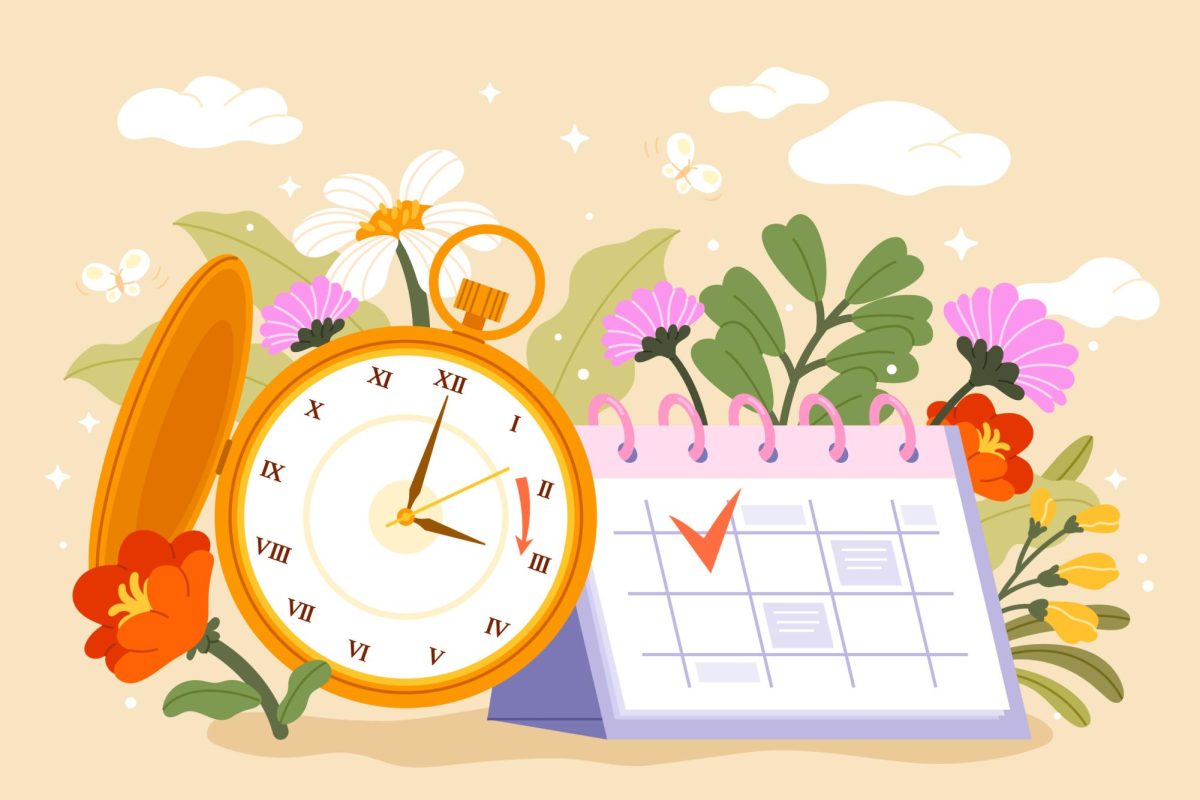Multitasking is quite common, especially for students. Juggling extracurriculars, academics, and a social life all at once can easily become overwhelming, and many students use multitasking as a method to cope with their busy schedules. However, there’s a fine line between finding time for your responsibilities and doing everything all at once; splitting your attention to save time on tasks ends up harming the quality of your work, and it also has detrimental effects on your health.
Taking a closer look at the brain, the effects of multitasking become immediately apparent. When focusing on two or more tasks at once, the brain suffers from “switch costs.” The different activities taking place simultaneously slow down the brain’s networks and result in more frequent mistakes.
“A switch cost is a loss of accuracy or speed that comes when you shift between tasks,” said Avery Hurt in an article published by Stanford’s Wu Tsai Neuroscience Institute. “Though some of the costs of multitasking are subtle, they are by no means trivial.”
Multitasking may seem productive on the surface, but in reality, it actually slows down your productivity by as much as 40%. Along with the increased number of mistakes that are made, this makes multitasking counterproductive. This means that there is a decrease in reaction time where the brain takes a moment to coordinate itself while switching tasks.
When performing several tasks, the brain uses executive functions known as “goal shifting” and “rule activation.” Goal shifting refers to the choice to switch from one task to the other, while rule activation is the brain’s recognition of the changes in the rules of each task. This change allows us to differentiate between the two tasks and acknowledge what to do differently.
“Moving through these stages may only add a few tenths of a second, but it can start to add up when people switch back and forth repeatedly,” said psychosocial rehabilitation specialist Kendra Cherry in the medically-reviewed article How Multitasking Affects Productivity and Brain Health.
Multitasking may seem beneficial when taking on one complex and one simple task. Tasks that we are familiar with or take little to no effort should, in theory, be completed easily without affecting our ability to complete the more complex activities. However, the effects of multitasking affect even these low-effort tasks.
The effort of switching from task to task inhibits automatic behaviors; these are the behaviors we use to perform familiar tasks. Usually, our brains are able to go on autopilot and follow through with these tasks without much mental work. However, the act of multitasking breaks up the familiarity of the action, preventing the brain from using automatic behaviors that would’ve been faster and easier.
While it may seem harmless to multitask for certain situations, there are occasions when multitasking simply isn’t worth the risk. For instance, driving while distracted can yield enormous consequences. Even simple tasks, like changing the music or taking a sip of water, can slow the brain’s ability to react to its surroundings.
The American Psychological Association said, “losing just a half second of time to task switching can make a life-or-death difference for a driver on a cell phone traveling at 30 mph.”
Multitasking on a regular basis can also impair cognitive abilities. Instead of increasing productivity and the ability to function under stress, multitasking is actually harmful to one’s ability to focus.
“Chronic multitaskers tend to show more impulsivity than their peers, and they may be more likely to downplay possible risks associated with tackling multiple things at once,” said Cherry. “They also seem to show lower levels of executive control and are often distracted easily.”
While multitasking may seem very productive and effective, there are far fewer benefits to it than what many people believe. In a society where getting things done as quickly as possible is applauded and praised, multitasking might seem like the best tool for students to use. However, one should be cautious of their use of multitasking; more often than not, it becomes more time-consuming than helpful in the long run.
Image courtesy of FREERANGE STOCK







